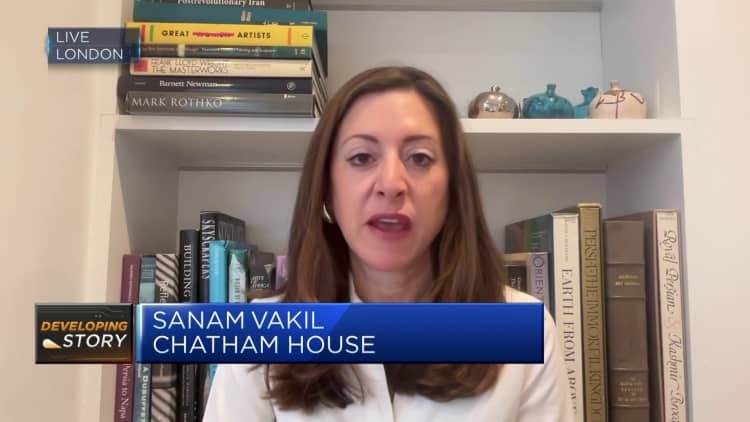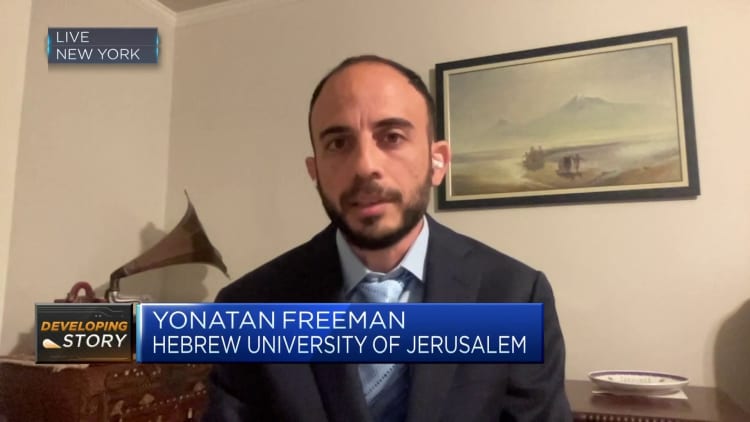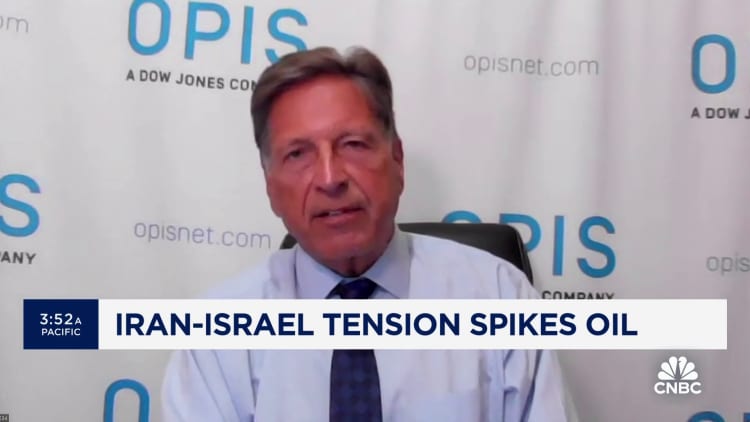
Iran’s weekend attack on Israel marks a “new paradigm” in the Middle East conflict, which risks escalating into a wider regional war, Chatham House’s Middle East director said Monday.
Sanam Vakil at the London-based think tank said it was a matter of when and not if Israel would respond after its War Cabinet vowed on Sunday to “exact a price” against Tehran for its overnight aerial assault on the Jewish state.
“The Israeli leadership will have a hard time not responding. They may not do it immediately, but I think a confrontation between Israel and Iran — which might be priced into the markets — is certainly coming, it’s just a question of when,” Vakil told CNBC’s “Squawk Box Europe” on Monday.
Iran launched more than 300 drones and missiles against military targets inside Israel on Saturday in response to an Israeli strike that killed top Iranian officials in Syria.
The attack, though well telegraphed in advance, has presented some opportunity for Israel to rehabilitate its image following its monthslong onslaught in Gaza, which many perceive as disproportionate to Hamas’ Oct. 7 terror attacks.

However, an Israeli counteroffensive risks further escalating tensions between the longtime adversaries from a “shadow war into a very direct and open one,” and drawing in their respective allies, Vakil said.
“We have woken up to a new paradigm in the Middle East. The warnings of a regional war have proven to come true,” Vakil said in an additional research note emailed to CNBC.
“There’s not a high degree of confidence that Israel could strike Iran and get back without dragging the rest of the region into this broader conflict,” she added.
U.S. response in focus
United Nations Secretary-General Antonio Guterres said Sunday the Middle East was “on the brink” and urged de-escalation between the two countries.
Vakil noted that regional players were now relying on the U.S. and Western allies to “impose restraint” on Israel to prevent a wider conflict.

U.S. President Joe Biden has already insisted that Washington would not take part in any counteroffensive against Iran, even as he reiterated support for Israel and convened G7 leaders to agree on a coordinated response to Iran’s “brazen” attack.
His response moving forward will prove especially sensitive as it could play a deciding role in November’s U.S. presidential election.
“What this attack on Israel has done is bring a warmness back to the relationship and show that the U.S. has still got Israel’s back. But the U.S. does not, in this key election year, want to get dragged into something bigger,” Vakil said.
“Iran is a toxic asset for Washington, and you will have Republicans perhaps criticizing President Biden for not being tougher on Iran, so that is an inflection point that emerges throughout the campaign,” she added.
Credit: Source link














